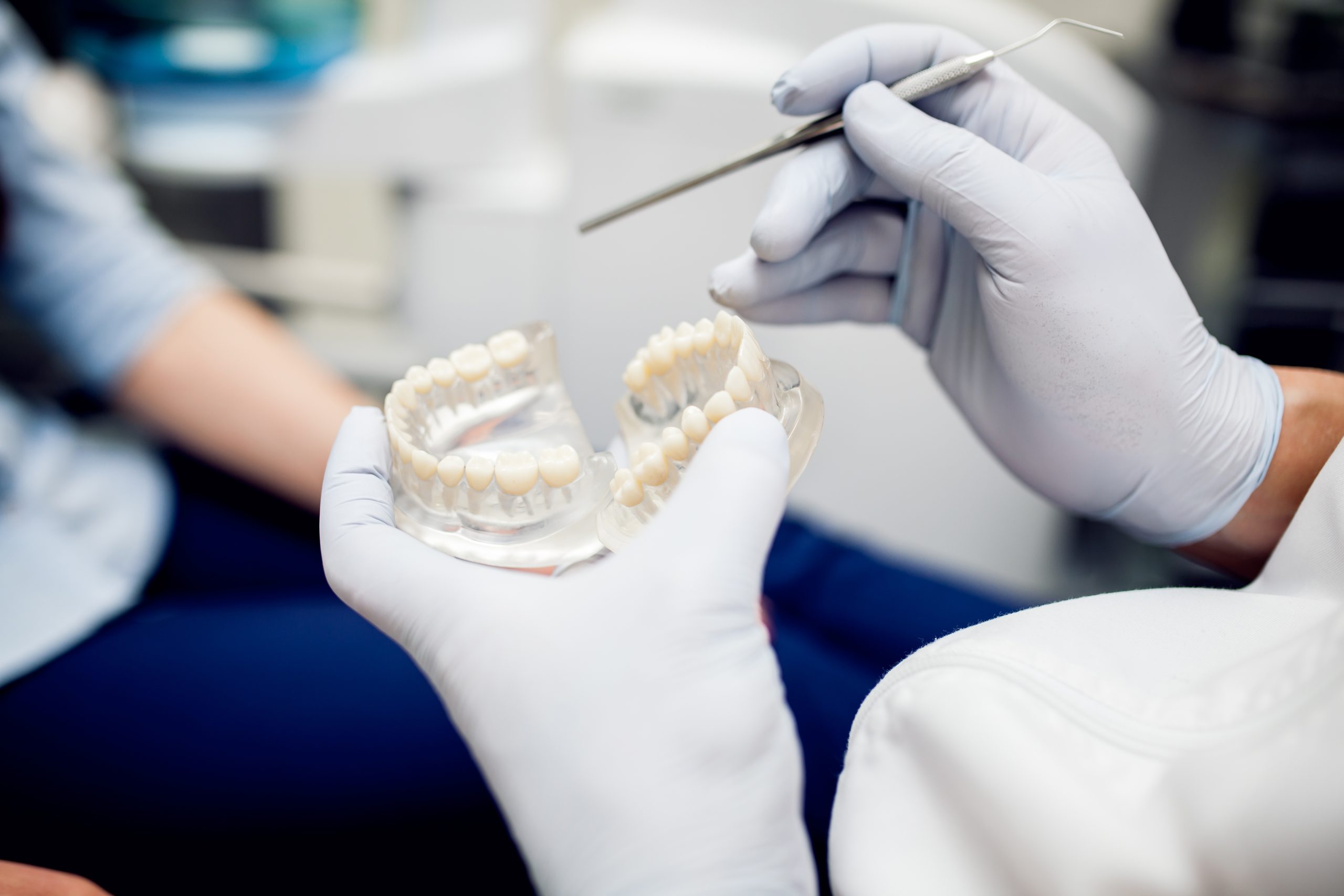Reclaim Your Complete Smile and Confidence
What are Dental Implants?
Dental implants are revolutionary tooth replacement solutions that consist of small, biocompatible titanium posts surgically placed into the jawbone beneath the gum line. These posts act as artificial tooth roots, providing a stable and durable foundation for prosthetic teeth, such as crowns, bridges, or dentures.
How Dental Implants Work?
The process of dental implants involves a surgical placement of the titanium post into the jawbone. Over time, a process called osseointegration occurs, where the implant fuses directly with the bone, creating an incredibly strong and stable anchor. Once integrated, an abutment is attached to the implant, and a custom-made crown, bridge, or denture is then securely placed on top. This creates a permanent tooth replacement that looks, feels, and functions just like a natural tooth.
Why Consider Dental Implants?
Dental implants offer unparalleled benefits for those with missing teeth. They are the only tooth replacement option that stimulates the jawbone, preventing bone loss and preserving facial structure. Unlike traditional bridges, implants do not require altering adjacent healthy teeth. They provide superior stability, allowing you to eat, speak, and smile with complete confidence, without worrying about slippage or discomfort. With proper care, dental implants can last a lifetime, making them a wise and long-term investment in your oral health and overall well-being.


